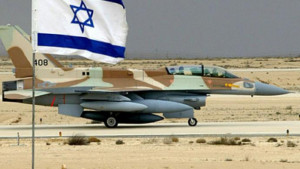
Although Israeli Prime Minister’s recent visit to Moscow seemed to be aimed at attempting to achieve a better coordination between both countries in Syria, the reality is far from it and, as it stands, both countries have conflicting interests in the region.
The fact are indicating that Russian build-up in Syria is signalling yet another major defeat for Israeli regional polices after its failure in preventing the Iran-nuke deal from being signed. In an official statement issued by the office of Israeli PM, it was underlined that the discussion would concern “the stationing of Russian forces in Syria… (and) the threats posed to Israel as a result of the increased flow of advanced war material to the Syrian arena and the transfer of deadly weapons to Hezbollah and other terror organizations.”
However, Russian officials didn’t seem intrested in this discussion. In their statement, it was said “Urgent issues of bilateral cooperation and the international agenda are scheduled to be discussed. In particular, the sides are expected to exchange opinions on the issue of the Middle East peace process and the fight against the global terrorist threat.”
These obviously conflicting perceptions regarding the purpose of PM’s visit clearly indicate that Moscow was not open to negotiations regarding its firm postion on Syria. While Russia has been supporting Syria against the US supported Wahhabi-Sunni military incursions through proxy groups such as Al-Nusra front and now ISIS/ISIL, Israel remains concerned over Iranian (and tacitly Russian) support for militant groups like Hezbollah in Lebanon.
According to Netanyahu, the Syrian government — the same one that’s getting Russian weaponry — has been involved in creating instability by arming Hezbollah and working with Iran to try to “build a second terrorist front against us from the Golan Heights.” Indirectly, there was an implication that Russian weapons support will also be contributing towards the new anti-Israel “front.” As a matter of fact, this was rather crudely put in words by one of Israeli officials well before the visit took place. “The Prime Minister will present the threats to Israel emanating from the increased flow of advanced weaponry to the Syrian arena and from the transfer of lethal weaponry to Hezbollah and other terrorist groups,” an Israeli spokesman said.
However, Mr. Putin chose to differ with Netanyahu regarding the opening of this new “front.” “As far as Syria is concerned, we know that the Syrian army and Syria as a whole are in no condition to open a second front,” he said, according to a Kremlin transcript. “They have their own statehood to save.” As far as the question of Russian support is concerned, Russia has said its buildup is part of a long-standing delivery of military equipment to Mr. Assad’s forces. According to official statements there’s only military specialists on the ground in Syria that are there to support the continuing delivery of military equipment to the Assad regime.
Russian policy regarding Syria in particular and the region in general has been plain enough from the very beginning of the current phase of conflict for everyone to understand. This being the case, the real question that we should therefore be asking is this: What was the actual purpose of Netanyahu’s visit? Was it merely the question of avoiding “accidental clash” with Russia on Syrian territory?
When we read between the lines, the actual issue becomes crystal clear. For Netanyahu, the matter of crucial importance was, as a Russian news agency reported, to fathom the extent of Russian support for Assad in Syria, to find out additional details about the Russian deployment, and to dissuade Russia from giving advanced weaponry such as S-300 and S-400 missiles to Syria.
The clash between the two states also becomes self-evident when one looks at Israel’s core interest vis-à-vis Syria. While for Russia, defense of Syrian state is the primary objective; Israel has been and still continues to support Syria’s “balkanization” along sectarian and ethnic lines. It is primarily for this very reason that Israel was the first State to announce its support for an independent state of Kurdistan. An evidence of this support can be had from the fact that Israel has been buying oil from Kurds since at least the beginning of the current phase of conflict.
According to a very recent report, Israel buys almost three quarters of its oil from Iraqi Kurds. The report went on to mentions, “Israeli refineries and oil companies imported more than 19m barrels of Kurdish oil between the beginning of May and August 11, according to shipping data, trading sources and satellite tanker tracking. This would be worth almost $1bn based on international prices over the period.”
With Syria getting “balkanized”, not only would Israel have Iranian influence in the region reduced to a great extent, it would also render a great ‘service’ to its new ally in the region: Saudi Arabia. In fact, Israel has been making preparations for such an eventuality since long.
Certain reports have appeared claiming that Israel, besides attacking Syria directly, has cultivated tribes and groups living close to their border with Syria as a buffer to make certain that “enemies” do not get too close to Israel. Israel has helped arm the tribes and they are in close contact with them. Some of the groups are therefore to be seen by Russia as anti-Assad.
In simple words, not only does such a strategy indicate full operationalization of “divide and rule” or “balkanization”, it also signifies that Israeli weapons may possibly get in direct conflict with Russian weapons. Given the ever increasing Israeli involvement in the region, the most important question that must be asked is not “if” such a clash would ever take place, the question should be “when” will this eventuality happen?
Salman Rafi Sheikh, research-analyst of International Relations and Pakistan’s foreign and domestic affairs, exclusively for the online magazine “New Eastern Outlook”
